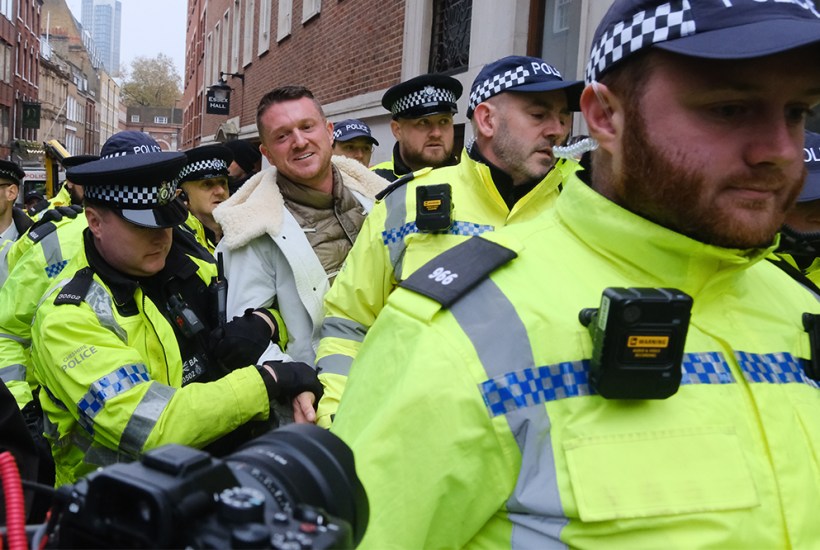I was at the march against antiSemitism in London on Sunday, but did not witness the arrest of Tommy Robinson. I’m thankful for that because I wouldn’t have known how to react in my capacity as head of the Free Speech Union. Whether the Met was right to arrest him (and subsequently charge him) requires careful thought and the fact that the answer isn’t obvious makes me sympathise with the operational commander who had to make a decision.
Already a subscriber? Log in
Subscribe for just $2 a week
Try a month of The Spectator Australia absolutely free and without commitment. Not only that but – if you choose to continue – you’ll pay just $2 a week for your first year.
- Unlimited access to spectator.com.au and app
- The weekly edition on the Spectator Australia app
- Spectator podcasts and newsletters
- Full access to spectator.co.uk
Or
Unlock this article
You might disagree with half of it, but you’ll enjoy reading all of it. Try your first month for free, then just $2 a week for the remainder of your first year.









Comments
Don't miss out
Join the conversation with other Spectator Australia readers. Subscribe to leave a comment.
SUBSCRIBEAlready a subscriber? Log in